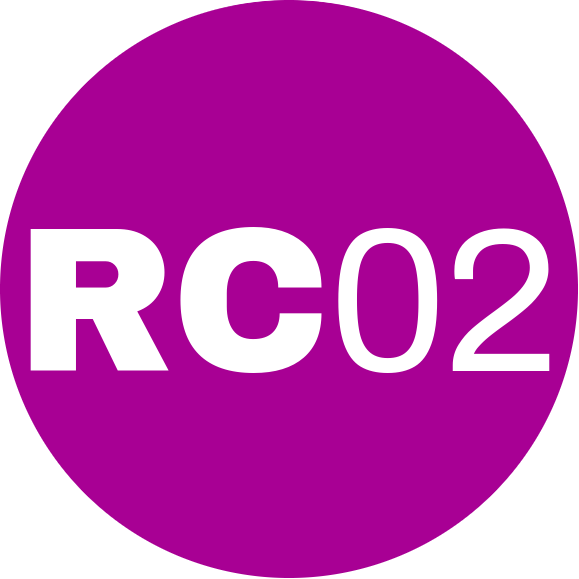Dear Colleagues,
We cordially invite you to submit an abstract for the Conference “Production, Retailing and Consumption of Food. Commodity Chains before and after Covid-19.” 16— 18 June 2022, onsite at TU Berlin, Germany
Please find details below. The deadline is 18 April 2022.
Organizers:
Elmar Kulke, Linda Hering and Jakob Engel (HU Berlin, Germany),
Nina Baur and Lara Espeter (TU Berlin, Germany)
Aims of the Conference
During the last decades, global economic interactions have been strongly influenced by the development of global commodity chains (GCC) which are linking different steps of production, transportation/logistics, retailing and consumption at different places all over the world. In the beginning, only manufacturing industries were organized on a global level. Today more and more fresh food, vegetables or flowers are coming from new-established export-oriented farming in countries of the Global South. All in all, in a globalizing world, how these global commodity chains are organized and develop is of great importance for the functioning of the economy and society. This is especially true for agricultural production in general and the production of fresh produce in particular which are especially sensitive sectors both for producers and consumers: While agriculture is only a minor economic sector in highly industrialized countries, in the Global South, agricultural production remains an important sector. Agriculture thus remains an important source of the livelihoods for large parts of the world population. Regional-, supra-regional- and export-linkages open farmer reliable incomes and enable them to invest in improving the production; but they also have to obey social and ecological standards defined by retailing and consumption. However, the system also makes farmers vulnerable, if they face sudden changes through competition with new developing production clusters or external shocks like Corona. For high-brow consumers in the Global North, fresh produce such as flowers or exotic fresh fruit served out of season have been a source of distinction for a long time. More importantly, for not-so-well-off consumers, food is especially sensitive because eating is not only a necessity but in many parts of the world, poverty is still linked to lack of food. Even in Europe, the experience and fear of starvation is deeply engrained in cultural memory, as for long periods of European history, everyday lives were characterized by lack of food and famines. Before the Corona crisis, this seemed a thing of the past: Modern-day consumers experienced food and other fresh produce as a commodity like any other – to be bought securely on a regular basis all over the year in the local stores without having to worry about their origins and availability. The Covid-19 pandemic has brought this seeming security to an immediate end: The sudden and ongoing lock-downs and restrictions of transport have shown how fragile and vulnerable global commodity chains in general and commodity chains of fresh agricultural products in particular are.
Understanding how commodity chains, logistics, transport and communication for agricultural fresh products are organized and have been re-organized during the last decades, as well as comprehending the effects of the Covid-19 crisis on commodity chains thus is of utmost importance. Such analyses of should not only be based on theoretical considerations but also on empirical evidence and more detailed analyses. The conference will provide this empirical evidence. The main objective of the conference is to analyze how production, retailing and consumption of food interlock as well as how external shocks induce the (re-)organization of the commodity chains for agricultural fresh-products. We will particularly analyze the Covid-19 pandemic’s short-term (lock-down-induced) and the long-term (induced by attempts to establish of reliable and robust chains) positive and negative effects both on the organization of commodity chains and the individual actors of the chain. By combining the economic geographical approaches of global value chains (GVC) and global production networks (GPN) with the economic sociological approaches of convention theory and world systems analysis, we will inspect how the spatial distribution of commodity chains interacts with actors on the actor levels. Papers should address one of the following questions:
How were commodity chains organized and spatially structured before the Covid-19 crisis and what challenges did they face during the crisis?
What are the driving forces of these changes? That is: Who are powerful actors in the chain (consumers, retailers, intermediaries, agricultural producers, policy-makers) and where are they located? Who acted when, why and with what effects as a consequence of the Covid-19 crisis?
What short-term effects (during the crisis) and long-term effects (after the crisis) does this have on the spatial organization of the chain and on the actors of the chain? What effect does the organization
Papers providing theoretical reflections or empirical evidence are equally welcome. The can either address the whole chain or focus on a specific actor group of the commodity chain (such as consumers, retailers, intermediaries, agricultural producers, policy-makers).
Location
The conference will likely take place as a face-to-face conference in the rooms of the Collaborate Research Center “The Refiguration of Spaces” (CRC 1265) and the Department of Sociology at Technische Universität Berlin
(rooms BH-N and FH 804/04, https://www.tu.berlin/en/studieren/university-life/campus-map/)
Fees
There will be no conference fees but presenters have to fund their own travel costs.
Publication
Selected papers will be published in an edited book.
Submission
If you are interested in presenting, please submit an English-language abstract containing the following information to warenketten@mes.tu-berlin.de by 18.04.2022:
Paper Title
Authors (Name, Email-Address, Institutional Affiliation, Country)
Abstract (250 – 500 words).
If you do not receive an acknowledgement of submission within five working days, please resend your submission. The workshop organizers will inform you, if your paper has been accepted, by 02.05.2022.

